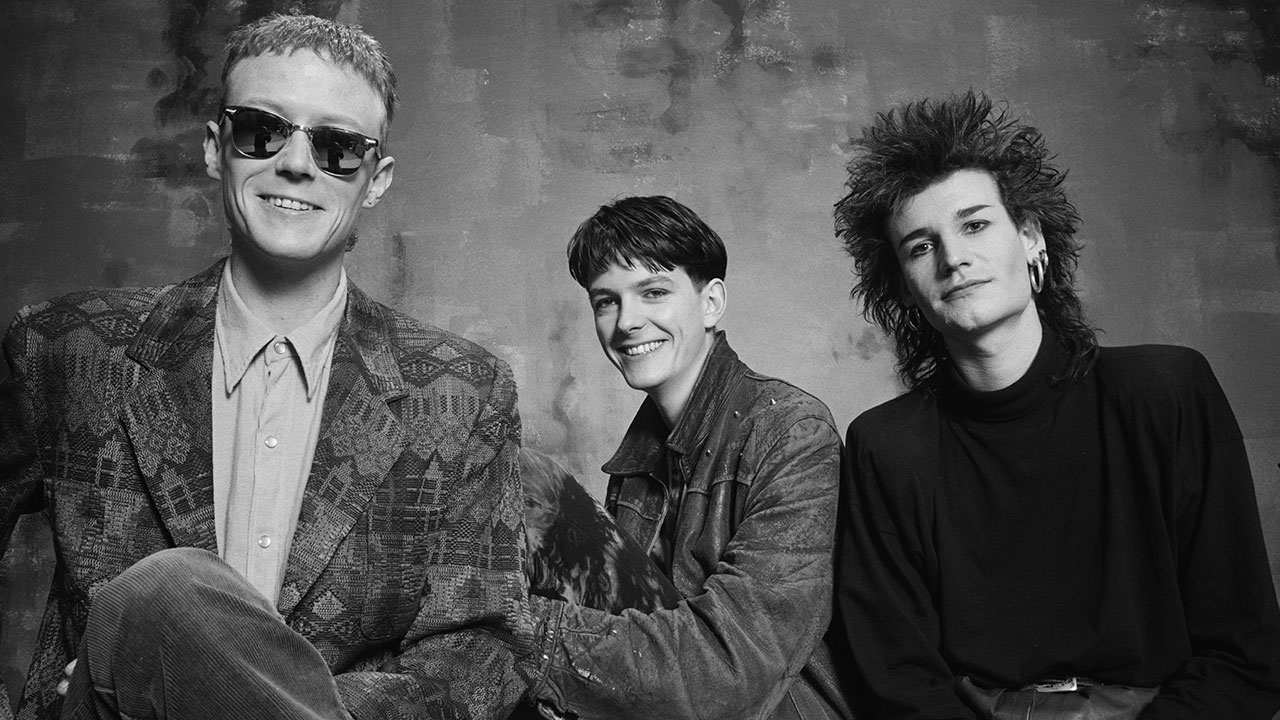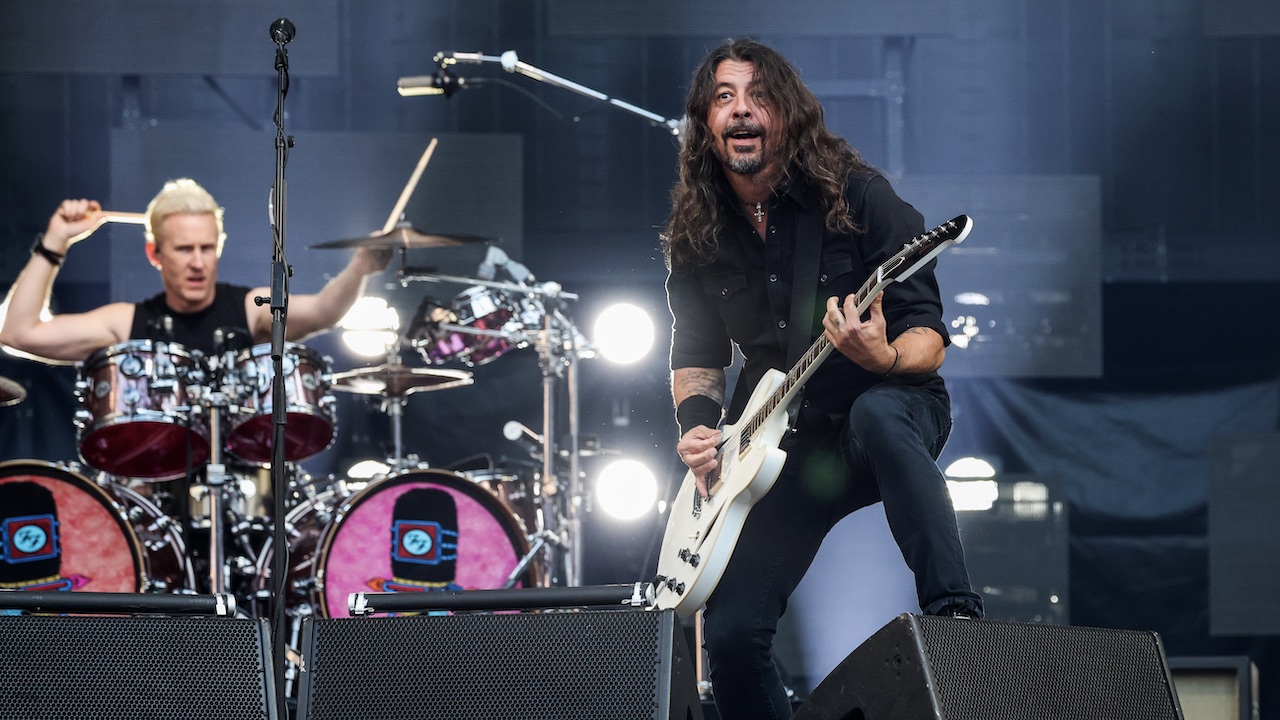Love And Rockets: How three British goths broke America
Post Peter Murphy, the remaining members of Bauhaus reconvened to form Love And Rockets. Much to everyone’s surprise, America welcomed them with open arms…

Select the newsletters you’d like to receive. Then, add your email to sign up.
You are now subscribed
Your newsletter sign-up was successful
Want to add more newsletters?

Every Friday
Louder
Louder’s weekly newsletter is jam-packed with the team’s personal highlights from the last seven days, including features, breaking news, reviews and tons of juicy exclusives from the world of alternative music.

Every Friday
Classic Rock
The Classic Rock newsletter is an essential read for the discerning rock fan. Every week we bring you the news, reviews and the very best features and interviews from our extensive archive. Written by rock fans for rock fans.

Every Friday
Metal Hammer
For the last four decades Metal Hammer has been the world’s greatest metal magazine. Created by metalheads for metalheads, ‘Hammer takes you behind the scenes, closer to the action, and nearer to the bands that you love the most.

Every Friday
Prog
The Prog newsletter brings you the very best of Prog Magazine and our website, every Friday. We'll deliver you the very latest news from the Prog universe, informative features and archive material from Prog’s impressive vault.
"If you look at the fact that three of us got together again, you can probably work out where the personality clash lay!” laughs David J, Bauhaus bassist and subsequently one third of Love And Rockets alongside guitarist Daniel Ash and drummer Kevin Haskins. “It’s not too hard to deduce, is it?”
Edginess and volatility were integral to the music and appeal of Bauhaus, for many the true godfathers of goth and the genre’s most important and innovative band. That volatility was no façade, either. In fact, when the band split up in 1983 after the release of their lavish swansong Burning From The Inside, it didn’t take long for fans to realise the situation that had prompted their demise. Vocalist Peter Murphy had always had a fractious relationship with his band mates, but the Burning sessions – during which both David J and Daniel Ash performed lead vocals for the first time, to their singer’s annoyance – proved to be terminally divisive. The result was a messy split and, more pleasingly, the formation of Love And Rockets; a band that would surprise everyone, themselves included, by taking America by storm.
Opening their account in 1985 with a fiery cover of The Temptations’ 1970 hit Ball Of Confusion and debut album Seventh Dream Of Teenage Heaven, Love And Rockets were an entirely different musical animal from their revered former incarnation. Lighter, brighter and liberally marinated in psychedelia and artful rock’n’roll, their sound eschewed the previous menace and grandeur in favour of big hooks, languorous arrangements and wide-eyed eccentricity. The new direction worked like a dream.
“We didn’t really have a blueprint. We were just making it up as we went along, which was pretty much par for the course with everything we’ve ever done,” states David. “We’d make music and it would be deemed to be good or bad and if it felt good, we’d keep it, and if it didn’t we’d just throw it out. We had high standards and we knew we had to make a real impact with that first album, so it was very ambitious. We wanted it to be a very distinctive-sounding record.”
Buoyed by great reviews and unexpected chart success in Canada, where Ball Of Confusion notched up sufficient sales to earn gold status, Love And Rockets barely paused for breath before unleashing their second album, Express. Released in 1986, it veered wildly from the bolshy, snarling rock’n’roll of its first single, Kundalini Express, to the blissed-out psychedelia of An American Dream, and confidently showcased a band that were very much hitting their stride.
“We just felt very confident at that point,” David agrees. “We’d had quite a lot of success in America and Canada. We were over there doing gigs and they were selling out, so that engendered swagger! It really did take us by surprise. Bauhaus was a bit too underground and obscure to click in America. I think Love And Rockets had a more accessible rock’n’roll element, which we liked. We loved psychedelic music and we put it all together, it came out as it did and it just clicked. We got a huge amount of college radio play and that was really important at that time. We worked hard on the road as well, building it up.”
Despite still only enjoying modest success at home, Love And Rockets were beginning to have a major impact across the Atlantic. They recorded their third album, Earth Sun Moon, in 1987, working alongside renowned producer Derek Tompkins, who had overseen early Bauhaus sessions, including the recording of the legendary Bela Lugosi’s Dead. Predominantly acoustic and more blatantly psychedelic than ever, songs such as Mirror People, The Light and No New Tale To Tell brimmed with fresh ideas and energy. At that point, the band were, in the words of David J, firmly “in the zone”.
The latest news, features and interviews direct to your inbox, from the global home of alternative music.
With the wind in their sails, Love And Rockets’ real breakthrough came in 1989 when they released their self-titled fourth album. An eclectic and defiantly uncommercial record for the most part, ranging from sleaze metal romps like Motorcycle to ambient oddities like The Purest Blue, it also contained the slick and catchy So Alive, a song that would propel the band to the upper reaches of the US charts and turn their lives upside down.
“So Alive is pretty much an anomaly on that record, because the record’s kind of obscure,” David J explains. “We didn’t intend to record it that day. We were going to record something else, but then Daniel came up with the main riff and we wrote that song in one day. We recorded it and mixed it that day too. It was done in eight hours. We realised we had something really hot.” Thanks to the support of both US college radio and MTV, which in 1989 was still a significant power in terms of promoting new music, So Alive soared up the Billboard charts and very nearly hit the Number One spot. Everyone knew who they were. Suddenly, Love And Rockets were alternative rock’s biggest stars.
“For that song to become Number Two in America was unbelievable,” David admits. “It was nearly Number One! I think it was Michael Jackson that kept us off. We were booked to do an American tour and they kept adding dates to the tour and changing the venues, because the venues would sell out and there’d be double or triple the demand. Some days we were playing to 18,000 people and it just kept growing.”
Taken aback by their sudden popularity, Love And Rockets did exactly what any true rock’n’roll band would do in that situation and tried their best to squander the opportunity
“As is typical, we sabotaged it all to a degree and we’d go out and we wouldn’t play the hit!” laughs David. “We wouldn’t play a proper set, we’d do a wall of sound like My Bloody Valentine and keep it going for as long as we could to fuck with ‘em. It completely backfired and the record company hated it. We went a bit mad, really.”
Having reached that commercial peak, the rest of the Love And Rockets story is a tale of steady decline and diminishing returns. Still firing on all cylinders creatively, the band took a bold leap into the unknown for the acid house-influenced Hot Trip To Heaven in 1994. Unfortunately, it was so radically different from its predecessor that it bombed spectacularly. Despite being strong records, neither 1996’s Sweet F.A. nor 1998’s Lift could reverse the downward slide and by the end of the 90s, as plans emerged for what would prove to be an extremely a successful Bauhaus reunion, the Kundalini Express had run out of steam. Love And Rockets reunited briefly in 2007, performing at the Lollapalooza and Coachella festivals in the US the following year, but have not worked together since.
“Those reunion shows were great and the warm-up gigs in the small clubs were some of the best gigs we’ve ever done,” David recalls. “But Daniel’s heart wasn’t in it. He hasn’t made any music since then and as far as I know he’d rather spend his time fixing motorcycles. And good luck to him! We’ve had more offers coming in since then, but I’m off doing my solo thing now – various multimedia projects – and I’m really into that. Kevin’s working on film and TV stuff. But I look back on Love And Rockets with great fondness. We were great mates with great chemistry and we had a great time.”

Dom Lawson began his inauspicious career as a music journalist in 1999. He wrote for Kerrang! for seven years, before moving to Metal Hammer and Prog Magazine in 2007. His primary interests are heavy metal, progressive rock, coffee, snooker and despair. He is politically homeless and has an excellent beard.
